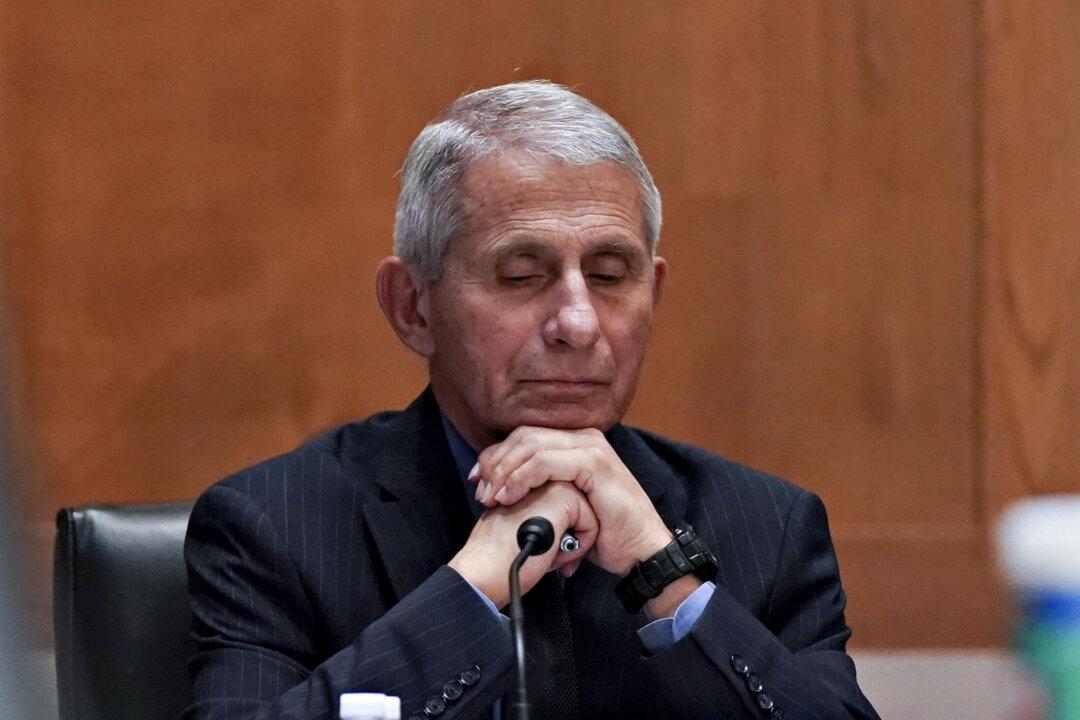Two key National Institutes for Health (NIH) executives in positions of influence on decisions about who gets grants from the agency received a total of 77 previously undisclosed royalty payments from outside firms between 2010 and 2014.
The secret royalty payments, which were first reported by The Epoch Times, are among thousands estimated to total at least $350 million paid between 2010 and 2020. Former NIH Director Dr. Francis Collins received 14 payments, Anthony Fauci, who heads NIH’s National Institute for Allergies and Infectious Diseases (NIAID), received 23, and Clifford Lane, Fauci’s chief deputy, got eight payments.





